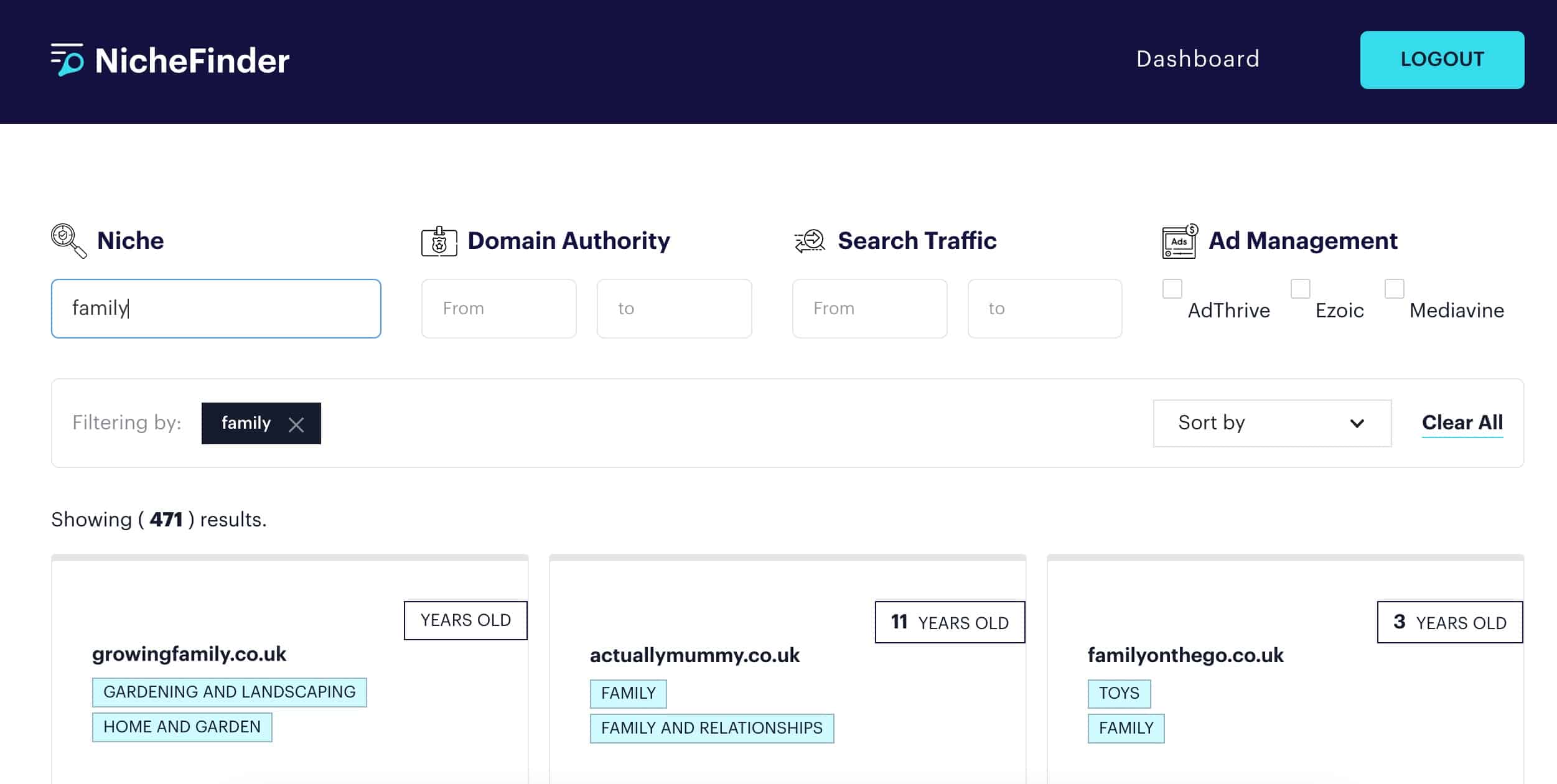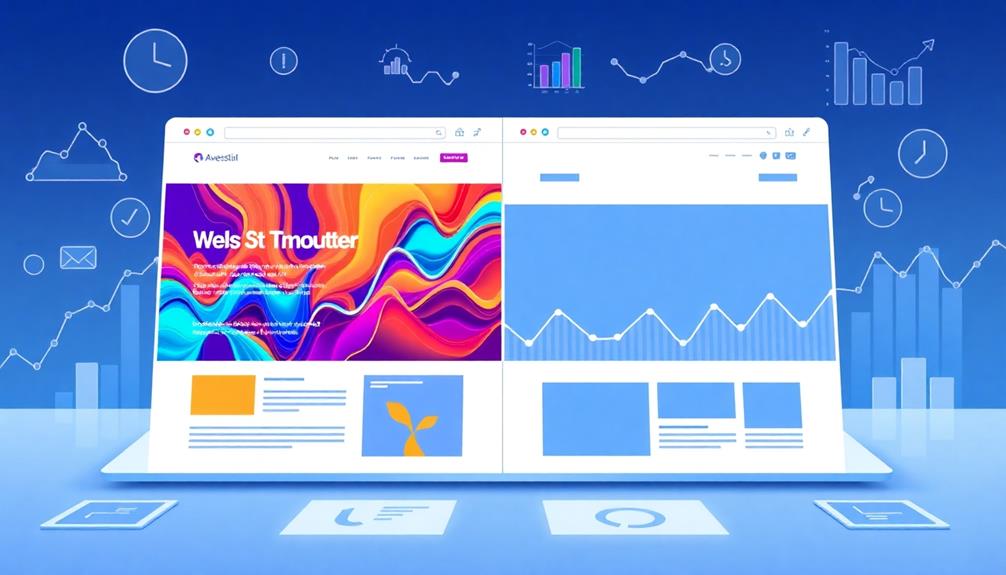To create client-winning social media service packages, focus on tailoring your offerings to meet specific client needs and goals. Start by conducting discovery sessions to understand their aspirations and budget constraints. Then, develop tiered packages—basic, mid-tier, and premium—with customizable add-ons to enhance engagement. Use clear pricing and transparent proposals, highlighting unique value propositions. Make sure to define objectives and expected ROI, coupling them with measurable success metrics. Finally, stay adaptable by incorporating feedback and keeping up with industry trends. This approach will boost client satisfaction and retention, setting you up for success in the competitive social media landscape.
Key Takeaways
- Develop tiered service packages (basic, mid-tier, premium) to accommodate diverse client budgets and needs effectively.
- Conduct thorough onboarding research to align packages with client goals, utilizing their terminology to build rapport.
- Offer customizable add-ons to enhance standard packages and address unique client demands for greater satisfaction.
- Incorporate platform-specific strategies tailored to each social media outlet to maximize engagement and brand visibility.
- Establish clear success metrics and regular reporting to demonstrate ROI and optimize future strategy adjustments.
Importance of Social Media Packages

When it comes to marketing your business, understanding the importance of social media packages can't be overstated. These packages offer a structured pricing model that simplifies decision-making for clients, enhancing their trust in your agency. By providing tailored service packages, you can greatly boost client satisfaction and retention, aligning your offerings with their diverse business needs.
Additionally, insights into entrepreneurial journeys can help you refine your social media strategies based on proven success stories.
When clients can choose from various tiers within your social media packages, they feel empowered and in control of their marketing efforts. This flexibility not only meets their budget but also fosters a deeper investment in your services. Clear and well-defined packages streamline proposal creation, allowing you to set precise service expectations and effectively differentiate yourself from competitors in a crowded market.
Moreover, extensive social media packages elevate your professional image, showcasing your expertise and past results. This not only attracts new clients but also opens doors to additional business opportunities.
Understanding Client Needs

Understanding client needs is essential for crafting effective social media strategies that truly resonate. During the client onboarding process, conducting thorough research on their goals and challenges helps you tailor packages that align with their specific requirements.
A discovery session is significant; it gives potential clients the opportunity to express their aspirations while allowing you to gather valuable insights. Incorporating insights from NLP's impact on customer experience can further enhance your understanding of their preferences and behaviors.
You should pay close attention to the language used by clients in these discussions. Utilizing their terminology in your proposals not only demonstrates understanding but also builds rapport, which is important for earning their trust.
Identifying the "why" behind their objectives enables you to set meaningful success metrics that reflect their desired outcomes.
Don't forget about budgetary constraints. Gathering this information early in your discussions guarantees you can develop tailored packages that fit within their financial parameters.
Establishing clear timelines and metrics for achieving stated goals keeps clients informed about their progress and enhances their confidence in your agency's capabilities.
Customizing Service Offerings

Customizing your social media service offerings starts with understanding your clients' unique needs and preferences.
By tailoring package options to fit various demographics and budgets, you can enhance engagement and satisfaction.
To develop effective packages, consider adopting a growth mindset that allows you to adapt and innovate based on client feedback.
Additionally, implementing a pricing strategy that allows flexibility guarantees clients find the perfect fit for their marketing goals.
Understanding Client Needs
To effectively meet client needs, conducting thorough audits of their existing social media strategies is vital. By identifying gaps and areas of improvement, you can tailor service offerings that address their specific pain points and goals.
Utilizing buyer personas is essential, as it helps you customize social media marketing packages that align with the demographics, psychographics, and behavioral patterns of the target audience, leading to maximum engagement.
During your initial discussions, be sure to gather insights on budgetary constraints. This knowledge allows you to create service packages that offer value without exceeding financial limits, enhancing client satisfaction.
Highlighting industry-specific trends and analyzing competitors' strategies further guarantees that your clients receive innovative and relevant solutions tailored to their niche.
Incorporating flexibility in service offerings is also key. By allowing add-ons or tiered packages, you enable clients to select the level of service that best meets their evolving needs and circumstances.
This adaptability not only showcases your commitment to client satisfaction but also positions your service packages as extensive and client-focused solutions.
Tailored Package Options
Creating tailored social media service packages can greatly enhance your ability to meet client needs. By understanding their specific goals and budget constraints, you can design offerings that resonate with what they're looking for.
Start by offering different tiers of packages—basic, mid-tier, and premium—so clients can choose options that align with their financial capabilities while maximizing value.
Incorporating customizable add-ons, like influencer marketing or hashtag research, can further elevate standard packages. These add-ons provide additional value and address unique client demands.
Analyzing buyer personas is essential, as it helps you craft packages that target the demographics and psychographics of specific audiences, ensuring more effective engagement strategies.
Regularly update your packages based on client feedback and industry trends. This practice not only keeps your offerings relevant but also demonstrates your commitment to client success in the ever-evolving social media landscape.
Pricing Strategy Considerations
When developing a pricing strategy for your social media service packages, it's crucial to establish a tiered structure that caters to varying levels of service complexity. This allows clients to choose packages that best fit their budget and needs.
Consider the estimated cost of each service, ensuring your baseline pricing reflects the number of social media platforms utilized and includes premiums for additional hours and overhead.
Highlight your unique value proposition by focusing on how your services enhance brand visibility and engagement. Clients are often willing to pay more for clear benefits over hourly rates.
Implement transparent pricing that allows for customization of packages, giving clients the option to select add-ons based on their specific requirements, which maximizes perceived value.
Regularly analyze competitor pricing structures and service offerings to stay competitive in the market. This helps you adjust your own packages to align with industry standards and client expectations.
Types of Service Packages

When it comes to social media service packages, you've got options that cater to different needs.
You might choose all-encompassing marketing solutions that cover everything from content creation to analytics, or go for platform-specific strategies that focus on a single social media outlet.
Understanding these types can help you find the right fit for your goals.
Comprehensive Marketing Solutions
Offering a variety of service packages, extensive social media marketing solutions cater to diverse client needs by combining essential elements like content creation, management, and advertising.
Thorough social media service packages typically include critical components such as strategy development and analytics tracking to guarantee you're meeting your goals effectively.
Your social media marketing package can also feature robust social media management and advertising services that help amplify your brand's presence.
Community engagement is another crucial aspect, allowing you to foster relationships with your audience through monitoring brand mentions and responding to inquiries. This engagement can greatly boost customer spending.
For added flexibility, consider incorporating customizable add-ons. These might include influencer outreach, visual content creation, or social media training, enabling you to tailor services to your unique business goals and budget constraints.
Additionally, platform-specific management packages can help you focus on specialized services tailored to networks like Facebook, Instagram, or LinkedIn, positioning you as an expert in those channels.
Platform-Specific Strategies
To effectively leverage social media for your brand, adopting platform-specific strategies is key. Each platform has unique requirements and user behaviors that can influence how you package your services. By tailoring your social media service packages accordingly, you can maximize engagement and reach.
Here's a quick overview of potential service packages:
| Platform | Strategy Overview |
|---|---|
| Focus on high-quality visual content, influencer collaborations, and targeted advertising. | |
| Emphasize community engagement features and engagement-driven content to boost interactions. | |
| Offer a Twitter management package that includes curated content, hashtag research, and real-time engagement strategies for a fast-paced environment. | |
| Create LinkedIn service packages centered around B2B networking, professional content, and targeted advertising. | |
| General | Tailor strategies based on platform metrics and audience preferences to align with clients' business goals. |
Essential Components of Proposals

A strong proposal is key to securing client buy-in for a social media strategy. Start with an executive summary that outlines the proposed strategy and highlights the expected ROI. This sets the tone and helps your client understand the value of the services offered.
Next, clearly define the objectives and goals that align with your client's aspirations. A well-structured implementation timeline is essential, detailing key milestones to keep your project on track.
Don't forget to include a thorough budget breakdown, indicating all costs associated with the services you're providing.
It's also vital to establish metrics for success. These will allow both you and the client to measure the effectiveness of the strategy and assess the ROI.
Make sure to present this data in a way that's easy to digest—incorporating visual elements like graphs or charts can enhance comprehension and engagement.
Presenting Your Proposal Effectively

Effective proposal presentation can make or break your chances of winning a client's trust and business. To create a winning proposal, tailor it to address the specific needs and objectives of your client. Use their language from discovery sessions to highlight your understanding of their target audience and how your social media marketing strategy aligns with their goals.
Start with a clear executive summary that outlines your proposed social media management services and expected ROI. This makes it easy for clients to grasp the value at a glance. Incorporate visual elements like graphs and charts to present data and insights clearly, enhancing comprehension and engagement.
Establish a defined timeline that includes key milestones, allowing clients to visualize the implementation process and expected outcomes. This structure not only adds professionalism but also instills confidence in your capability.
Measuring Success and ROI

Measuring success in social media campaigns hinges on tracking key performance indicators (KPIs) that matter most to your business. To truly assess campaign effectiveness, focus on essential social media metrics like engagement rates, click-through rates, and conversion rates. These actionable metrics provide insights into how well your content resonates with your audience and drives results aligned with client objectives.
Regularly analyzing these KPIs is important. Studies show that companies that regularly report on their social media performance are more likely to achieve their marketing goals. By defining success metrics tailored to your business, you enhance accountability and focus. In fact, 70% of businesses report better outcomes when their KPIs align with overall goals.
Utilizing social media analytics tools can further streamline the process. These tools automate reporting, providing real-time data that allows for quick adjustments to your strategies. When data is harnessed promptly, you can see up to a 20% increase in campaign effectiveness.
Remember to differentiate between vanity metrics, like follower counts, and actionable metrics that directly impact your business decisions. Focusing on the latter is key to maximizing ROI and driving meaningful results.
Future Trends in Social Media Packages

As social media continues to evolve, staying ahead of emerging trends is crucial for businesses looking to enhance their online presence. One significant trend is the integration of AI-powered content creation within social media packages. These tools help you generate high-quality visual and written content more efficiently, allowing you to focus on strategy.
Additionally, the popularity of ephemeral content, like Instagram Stories, emphasizes real-time engagement, making it essential to include timely content delivery in your packages.
With social commerce projected to hit $1.2 trillion by 2025, incorporating e-commerce functionalities—such as shoppable posts and integrated payment options—will be critical for maximizing revenue.
Moreover, ethical branding is gaining traction. Your packages should promote transparent and socially responsible marketing practices to attract conscious consumers.
Finally, data privacy concerns are reshaping social media marketing strategies. It's vital to prioritize compliance with regulations like GDPR and CCPA while maintaining user trust.
Frequently Asked Questions
How Do You Create a Winning Social Media Strategy?
To create a winning social media strategy, analyze your target audience, set clear objectives, assess competitors, maintain a consistent posting schedule, and regularly adjust your approach based on performance data and emerging trends.
How to Create a Social Media Management Package?
To create a social media management package, start by evaluating your client's needs and budget. Develop tiered options, include essential services, clearly outline pricing, and adapt based on feedback to guarantee ongoing relevance and effectiveness.
How Do I Create a Social Media Client Plan?
To create a social media client plan, audit their current presence, set clear objectives, develop buyer personas, structure service packages, and establish a timeline with milestones. Focus on meeting their specific needs and desired outcomes.
How Do You Charge a Client for Social Media Management?
When it comes to charging clients for social media management, think of it like crafting a tailored suit. You can choose hourly rates, project fees, or flat monthly retainers based on their specific needs and your services.
Conclusion
In crafting client-winning social media service packages, you're not just offering services; you're building bridges to success. By understanding client needs and customizing your offerings, you create a compelling value that resonates. As you present your proposals with clarity and confidence, remember to measure success and adapt to future trends. With each package, you're not just connecting brands; you're weaving a tapestry of engagement that drives results and fosters lasting relationships.










